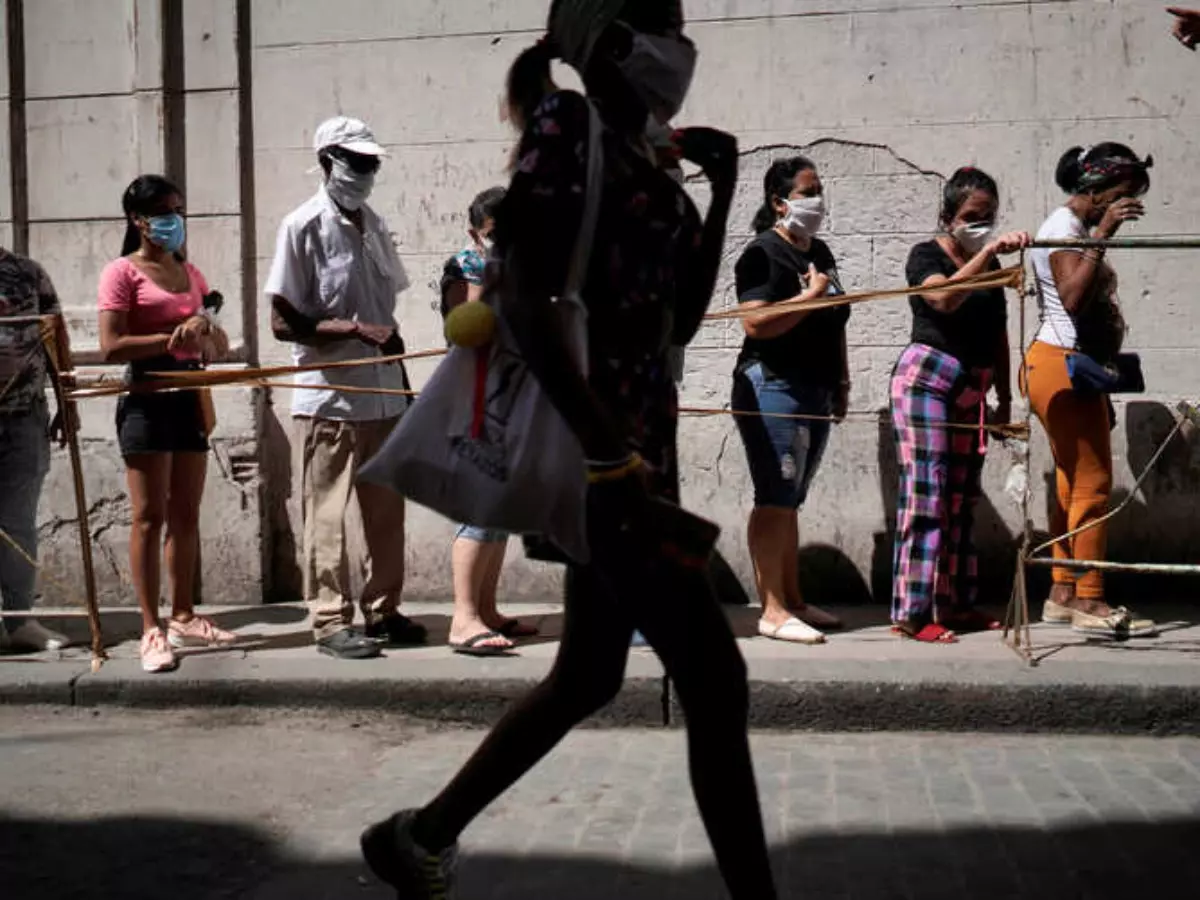Situation Is So Grim That UN Has Warned Of Threat To Global Food Supply Due To Coronavirus
Food and Agriculture Organization of the United Nations FAO has warned of threat to global food supply. In a report released by FAO late last month it saidSupermarket shelves remain stocked for now. A protracted pandemic crisis could quickly put a strain on the food supply chains.

As coronavirus pandemic continues to claim lives and cripple economies across the world, Food and Agriculture Organization of the United Nations (FAO) has warned of threat to global food supply.
In a report released by FAO late last month, it said, "Supermarket shelves remain stocked for now. But a protracted pandemic crisis could quickly put a strain on the food supply chains, a complex web of interactions involving farmers, agricultural inputs, processing plants, shipping, retailers and more."
 Reuters
Reuters
The issue isn't alarming, not yet, so it surely isn't about food scarcity. Rather, it¡¯s the world¡¯s drastic measures in response to the virus.
While emphasizing that disruptions to the food supply are currently ¡°minimal¡± and that ¡°there is no need for the world to panic,¡± the FAO said that the global food system is likely to be affected over the next several weeks by the impacts of the COVID-19.
¡°We risk a looming food crisis unless measures are taken fast to protect the most vulnerable, keep global food supply chains alive and mitigate the pandemic¡¯s impacts across the food system,¡± the agency wrote on its website.
 Reuters
Reuters
Border closures, movement restrictions, and disruptions in the shipping and aviation industries have made it harder to continue food production and transport goods internationally ¡ª placing countries with few alternative food sources at high risk.
FAO warned that ¡°the consequences could be drastic¡± if the number of COVID-19 cases were to rapidly increase in the 53 countries that are home to more than 113 million people who already face severe food insecurity.
The pandemic could prove particularly catastrophic in those areas that are already hit by other food-related crises, like the countries in sub-Saharan Africa,
 Reuters
Reuters
According to the World Economic Forum, COVID-19¡¯s spread through Africa has increased greatly over the past two weeks and as of March 30, 41 African countries have recorded cases.
The FAO said it was not only concerned about COVID-19¡¯s impact on countries that have pre-existing hunger problems. Smallholder farmers everywhere are particularly vulnerable to the fallout from the pandemic, as they might be kept from their land by quarantine or other movement restrictions and their access to markets is also likely to be limited.
The worldwide number of fatalities from the novel coronavirus pandemic rose to 100,859. More than 1.6 million cases have been registered globally since the epidemic first emerged.
Italy, which recorded its first death in late February, has had the most fatalities with 18,849 from 147,577 infections. The US has 500,399 cases of the novel coronavirus, passing the grim half-million milestone on Friday.
